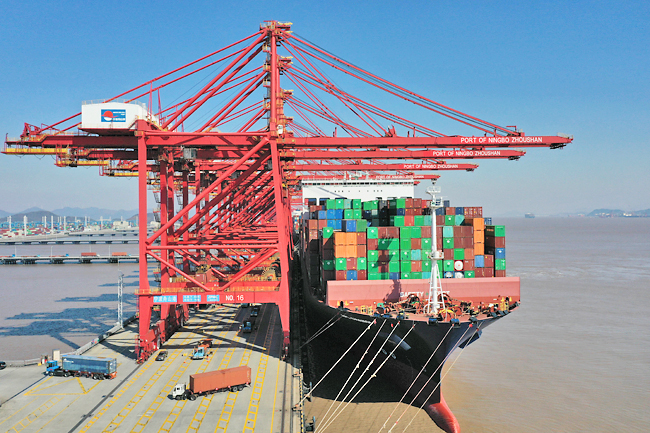ANN/THE KOREA HERALD – Last year, China experienced a sharp decline in its imports of Korean goods, marking the lowest level in three decades.
This downturn is attributed to the increasing rivalry between Washington and Beijing, alongside Seoul’s strategic pivot.
Data released by the Korea International Trade Association yesterday revealed that South Korea’s share of China’s imports decreased from 7.4 per cent the previous year to 6.3 per cent last year.
In 2022, Korea ranked second on China’s top importer list. Last year, the country was outpaced by the United States (US), which made up 6.5 per cent of its total imports.
Experts said that China’s growing self-reliance in key product manufacturing and technological development, spurred by geopolitical tensions and supply chain disruptions, is leading to Korea’s reduced commercial presence in the all-important market.
Samsung Electronics, which had topped China’s smartphone sales with 20 per cent market share until 2013, was dethroned by previous Chinese runners-up like Huawei and Xiaomi, while Hyundai Motor Group, whose market share peaked at seven per cent there in the 2000s, now has almost no presence in the world’s largest automotive market.

“Enhancing the overall competitiveness of Korea’s key export items is undoubtedly fundamental. Beyond that, Korea should look to broaden ties with provincial governments that are eager to attract investments while less affected by geopolitical tensions than the central government,” Yong In University Chinese studies professor Park Seung-chan told The Korea Herald.
Following China’s cuts in chip orders, Korean chipmakers have suffered a prolonged slump in sales in recent months. Chips are one of the nation’s top export items to China, making up almost 20 per cent of the export volume between the two nations.
Park added that it is crucial to enhance collaboration with the country in relatively new and emerging sectors like bio-health care and information technology, more so than traditional manufacturing domains such as semiconductors and batteries.
“This is not solely our challenge, but also pertinent for countries like Germany and Taiwan. China represents a market of undeniable significance to Korea despite the apparent economic slowdown.”
China’s imports totalled USD2.55 trillion last year, indicating a 5.5-per-cent decrease from 2022, according to China’s General Administration of Customs. Korea experienced a steep 18.7 per cent decline in its exports to China last year, well above the average decline rate.
Japan and the US experienced declines of 12.9 per cent and 6.8 per cent, respectively.


